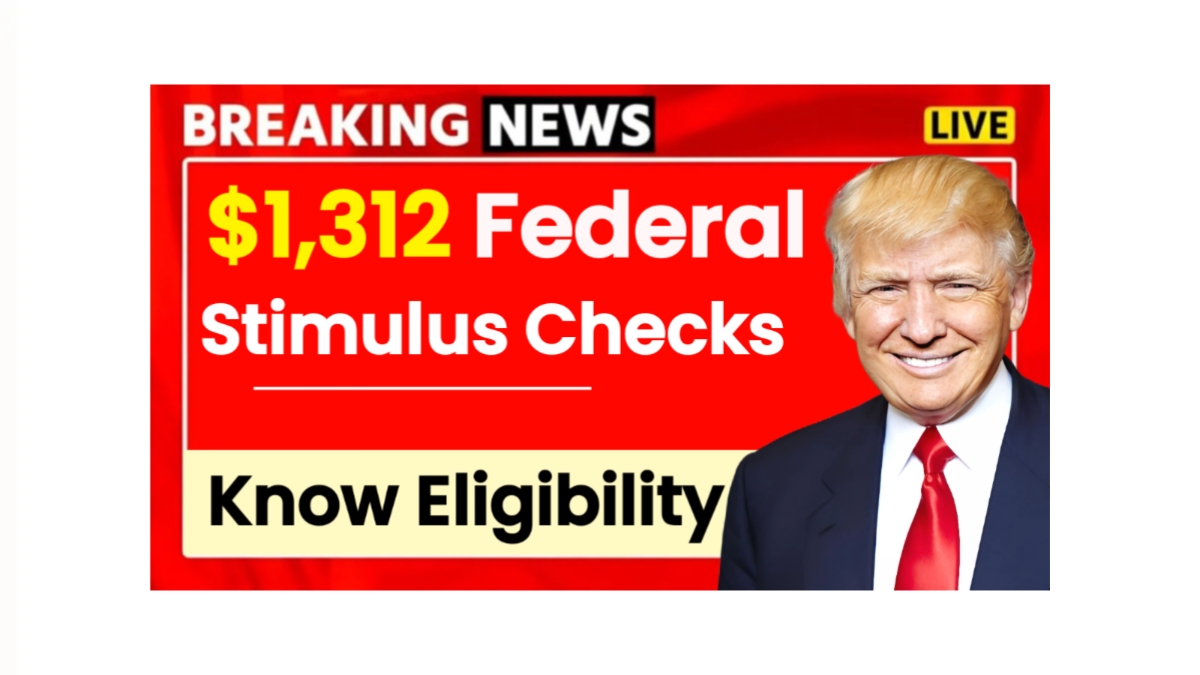The U.S. federal government is planning to provide financial assistance to millions of Americans through $1,312 stimulus checks in 2025. This initiative aims to help households manage ongoing economic challenges as inflation continues to affect everyday expenses. While not as extensive as previous pandemic-era payments, these new stimulus checks represent a targeted approach to supporting those still facing financial difficulties. The program is designed to provide relief while also encouraging consumer spending to help stabilize the broader economy.
The Economic Reasoning Behind the Stimulus
The decision to issue these payments comes from careful analysis of current economic conditions. Despite some positive signs of growth in the economy, many families continue to struggle with rising costs for essential needs like housing, food, and healthcare. Wages have not kept pace with inflation in many sectors, leaving households with less purchasing power than before. The $1,312 amount was determined as a balance between providing meaningful assistance and maintaining fiscal responsibility within the federal budget framework.
Eligibility Requirements for Recipients
The eligibility criteria for the 2025 stimulus checks follow similar patterns to previous federal payment programs. Individuals earning up to $75,000 annually are expected to qualify for the full payment. Heads of households with incomes up to $112,500 and married couples filing jointly who earn under $150,000 combined should also receive the complete amount. Those with higher incomes may still be eligible for partial payments, with benefits gradually decreasing as income rises above these thresholds. The IRS will likely use information from 2023 or 2024 tax returns to determine eligibility.
Distribution Timeline and Payment Methods
The distribution of these stimulus checks is scheduled to begin during the second quarter of 2025, approximately between April and June. The Internal Revenue Service will handle the disbursement through various methods, including direct deposit, physical checks mailed to home addresses, or prepaid debit cards. Recipients won’t need to apply for these payments, as the IRS will process them automatically based on tax filing information. However, those who have recently changed banks or moved to new addresses should update their information with the IRS to avoid delays.
Economic Impact Beyond Individual Relief
Beyond helping individual households with their immediate expenses, these stimulus payments are expected to benefit the broader economy. When consumers have additional funds to spend, local businesses often see increased sales and revenue. Previous stimulus programs have demonstrated that such direct payments can boost consumer confidence, reduce financial stress, and help maintain economic stability during challenging times. While these checks aren’t a permanent solution to economic inequality, they serve as a temporary measure while longer-term policies develop.
Preparing to Receive Your Payment
Though the payments will be processed automatically for eligible individuals, there are steps you can take to ensure a smooth experience. If you’ve changed your bank account or moved since filing your most recent tax return, updating your information through the official IRS website is crucial. Additionally, filing your taxes promptly and accurately for 2024 will help the IRS determine your eligibility correctly. Since no application is required, staying informed about the program’s developments and maintaining current contact information with the IRS are the most important actions potential recipients can take.
A Timely Response to Financial Challenges
The upcoming $1,312 stimulus checks represent a practical approach to addressing continuing financial difficulties faced by many Americans. By providing direct assistance to households most affected by economic pressures, the government aims to reduce financial stress while supporting broader economic stability. As the distribution date approaches, further details about the program will likely emerge, providing additional clarity for potential recipients. This initiative demonstrates an ongoing commitment to supporting economic resilience as the nation moves forward in 2025.
Disclaimer: The information in this article is based on current projections and may be subject to change as official policies develop. Recipients should verify details through official government sources closer to the distribution date.



